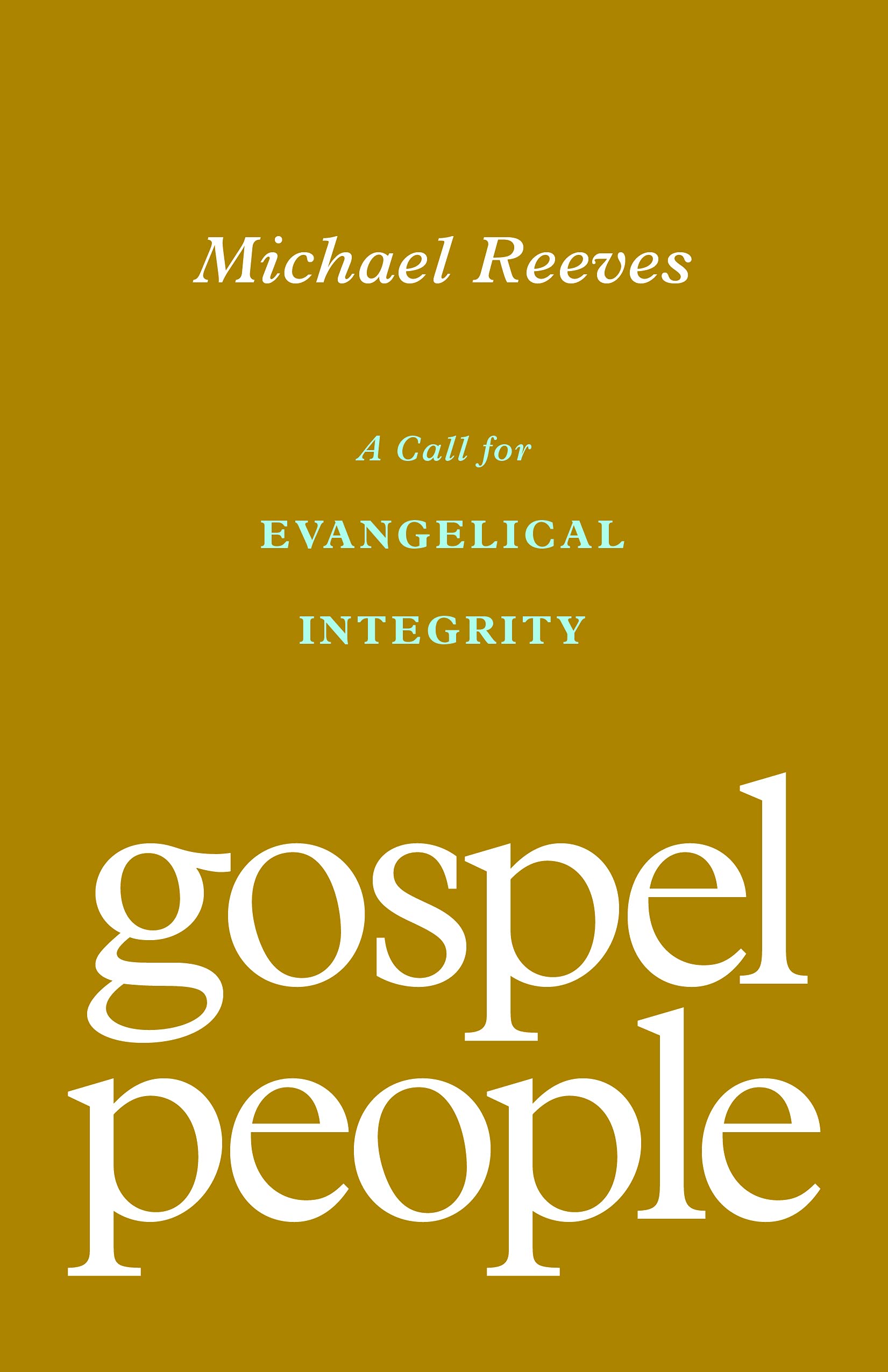A Book Review from Books At a Glance
by Taylor Combs
What is an evangelical?
The past several years have seen an increasing dissatisfaction—at the theological, ecclesial, and cultural levels—with the historic definition found in “Bebbington’s Quadrilateral.” The co-opting of the term by American news media and polling agencies, as well as the coupling of the term with other descriptors—most notably, “white”—has left evangelicals and evangelical observers scrambling to redefine, recapture, or rid themselves of the term altogether. This is seen in the several high profile articles and books published in the last five years by evangelical insiders wrestling with the meaning and meaningfulness of the term, as well as observers redefining the term along racial lines, political lines, and gender lines. It is into this context that Michael Reeves offers Gospel People.
Reeves, president and professor of systematic and historical theology at Union School of Theology, seeks to retrieve a doctrinal definition of “evangelical.” Evangelicalism is not to be defined sociologically, politically, racially, or culturally, he argues, but theologically. Its core theological tenets? (1) Revelation from the Father; (2) redemption by the Son; (3) regeneration through the Spirit. At the heart of evangelicalism, he argues, “lie (these) three essential heads of doctrine, out of which flow all its concerns” (19).
After setting out his thesis in chapter 1, Reeves gives a chapter each (2, 3, and 4) to expounding those three core theological tenets. In chapter 5, he contends for the importance of evangelicalism over sectarianism and naive ecumenism. In chapter 6, he pleas for evangelical integrity through a recommitment to the gospel and a concomitant recovery of humility, unity, and catholicity (rightly understood). Finally, the book concludes with two helpful appendices on the challenge of defining evangelicalism and the question of whether evangelicalism has a history beyond the past couple centuries.
This book is not the only important contribution to the conversation about defining evangelicalism. It is important to reckon with the racial-, cultural-, political-, and gender-related challenges that have faced evangelicalism over the past several years, and some of the resources mentioned above do that in a helpful manner. Reeves does not shy away from this. He acknowledges that “evangelicalism today is not truly or fully evangelical,” and that “we should not seek to excuse ourselves or gloss over the problems,” but rather “seek to renew ourselves and the church around the gospel” (106). This gives a glimpse into Reeves’s overall understanding of the label “evangelical.” It is an adjective before it is a noun, and it is aspirational before it is actual. “Evangelical” is not primarily a noun defining a person who meets a set of social criteria, but an adjective that describes a gospel-impulse. Similarly, it is never a perfect description of actual realities, for no community of Christians will ever perfectly be “gospel people” this side of eternity. But since we are always reforming and being reformed by the three core theological commitments of evangelicalism, it is right, Reeves argues, to retain “evangelical” as a theological and aspirational label.
Some readers will be disappointed with Reeves’s lack of engagement with the biblical Gospels in a book about being “gospel people.” It is not a new critique to say that Reformed evangelicals like Reeves focus too narrowly on Paul in defining the marrow of Christianity. It is not the goal of this reviewer to adjudicate that debate, but simply to point out that some readers may find the sparse engagement with the words of Jesus and language about the kingdom of God disappointing.
One particular strength of the book is the way Reeves responds to evangelical caricatures like anti-traditionalism and constant division. Evangelicals are not hopelessly opposed to tradition, as some critics argue. Rather, like the Reformers, evangelicals are always retrieving. In this effort, “church councils and creeds are good and important” (32). Certainly they do not have the magisterial authority that only Scripture has, but evangelicals rightly recognize the ministerial authority of the creeds and councils, and church history as a whole (34).
Likewise, to be evangelical is not to be sectarian, constantly “splintering” from one another. Though Reeves admits “we have been guilty of a balkanizing tendency to segregate into like-minded ghettos,” the gospel defines unity—not sectarianism—as health (90, 97). Though evangelicals will never manufacture institutional unity, they do maintain a spiritual unity that is even stronger and more significant (98). Evangelicals can maintain this unity by, first, “making ‘evangelical’…our primary Christian identity,” second, retaining secondary doctrines that will align us in certain denominations, and third, pursuing “fellowship across denominational lines to make manifest our spiritual unity” (102).
In the end, Reeves offers a beautiful and compelling vision of a beautiful and compelling movement and label that ought not be carelessly jettisoned, but carefully preserved and renewed. For aspiring ministers, theologians, church leaders, and laypeople wrestling with the “evangelical” label, this book provides a powerful impetus to recommit to a theological evangelical identity and to constantly submit to the renewal that can only come through the gospel. This and this alone will save us from our current crisis of evangelical integrity.
Taylor Combs, Pastor of King’s Cross Church (Nashville, TN); PhD Candidate, Midwestern Baptist Theological Seminary.
